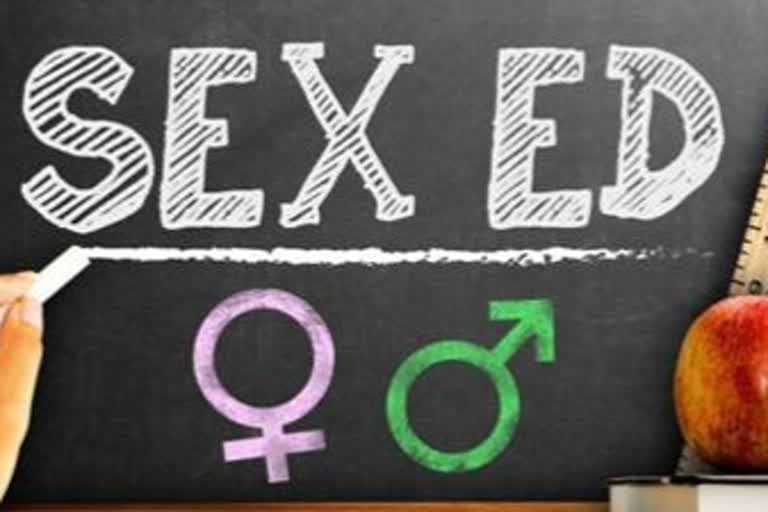Hyderabad:While there has been drastic social transformation in India in the past few decades and increasing adaptability, liberalization of social mores and hardwired attitudes, a lot still remains to be done when it comes to sex education.
The shutdown of schools due to COVID-19 pandemic has adversely affected whatever modicum of sex education was available. Teacher-student one-on-one and classroom group interaction has almost come to a halt, and students feel anxious and stressed by being confined at their homes and gazing at their screens for lectures. Absence of physical interaction with their peer group, classmates and the spirit of inquisitively grasping anything new is now more difficult than ever for teenagers. Another issue is that with students spending more time online, there is an enhanced risk of cyber bullying and online harassment. Without a proper mechanism for sex education, this will tend to get worse.
In the age of hyper internet connectivity and pandemic-induced study-at-home, there has to be a change in both the approach and the method. The blind spots in the conventional approach have to be fixed so as to make sex education truly inclusive, progressive, gender-neutral, and not divorced from the prevailing environment.
It is only due to the woeful lack of sex education that in large parts of the country there is a little awareness about what constitutes sexual harassment and violation of bodily autonomy. The gap between consent, infringement, and rape is not understood, and the stigmatization only pushes these instances under the rug, which only emboldens the perpetrators. As per a study by Indian Ministry of Women and Child Development, carried out by UNICEF and Prayas, an NGO, a shocking 53% of children between the ages of 5 and 12 have been sexually abused. In most of the cases, the offenders were close relatives of the victims, and more than half of all these cases go unreported.
Need of a broader outlook
Mostly, sex education in India is considered synonymous with teenage pregnancies and HIV/ AIDS. Even menstruation is only perfunctorily addressed. There is a need for a much broader understanding of the topic and attuning its as per gender identity, orientation and diversity.
Another issue is that despite the overreaching consensus and the imperative for it as a subject, there are still a lot of schools and other institutions that do not have any form of sex education in their curriculum. According to a report by ‘Youth Coalition for Sexual and Reproductive Rights’, most schools, private and public affiliated state boards of secondary education don’t have any form of sexuality education in their curriculum’.
Also read: India to introduce machine learning in schools: Education Minister
